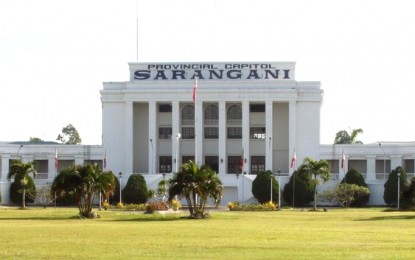
Provincial capitol building of Sarangani (Photo courtesy of the provincial government)
GENERAL SANTOS CITY – The provincial government of Sarangani has started preparations for the operationalization of its newly-completed PHP19-million medical waste treatment plant in Alabel town.
Rolando Tuballes, head of the Provincial Environment and Natural Resources Office, said Thursday they are currently finalizing the processes and required permits for its operations, among them the Environmental Compliance Certificate (ECC) from the Department of Environment and Natural Resources (DENR).
He said officials and personnel of the Environmental Management Bureau in Region 12 conducted a site visit in Barangay Bagacay, Alabel on Wednesday in line with its Environmental Impact Statement (EIS) review.
The EIS review is part of the standard processes for the issuance of the ECC, he said.
“The facility has to go through (these) processes before it can fully operate,” Tuballes told reporters.
The local government completed last month the installation of the plant, which is dubbed “Sarangani Medical Waste Treatment Facility”.
It commissioned the project in July last year to Davao City-based “cleantech” or clean technology firm RAD Green Solutions, the developer of proprietary technology Pyrclave Optima.
Tuballes said Pyroclave Optima is a medical waste processor that uses pyrolysis or the process of decomposing waste materials using extreme heat without direct contact with the waste materials.
“This technology will be using thermal disinfection to treat medical wastes from our hospitals, especially the infectious, pathological and pharmaceutical wastes,” he said.
He earlier said the facility will operate as an economic enterprise and mainly cater to the six provincial government-run and supported hospitals as well as other local health facilities.
A “biohazard truck” will be utilized to collect the wastes from the concerned medical and health facilities, he said.
Based on their studies, he said the province’s six hospitals produce an average of 120 kilos of medical wastes daily, with some 20 kilos considered infectious. (PNA)
